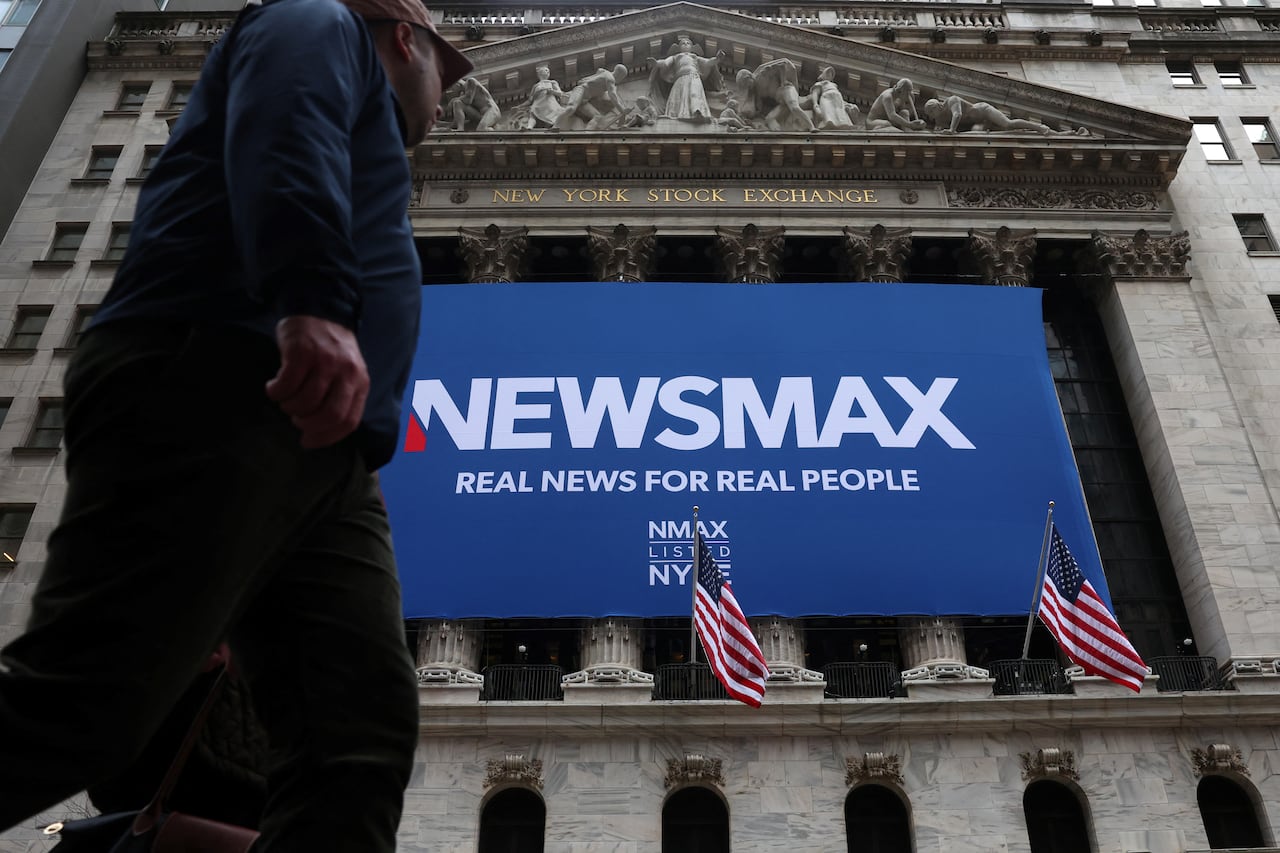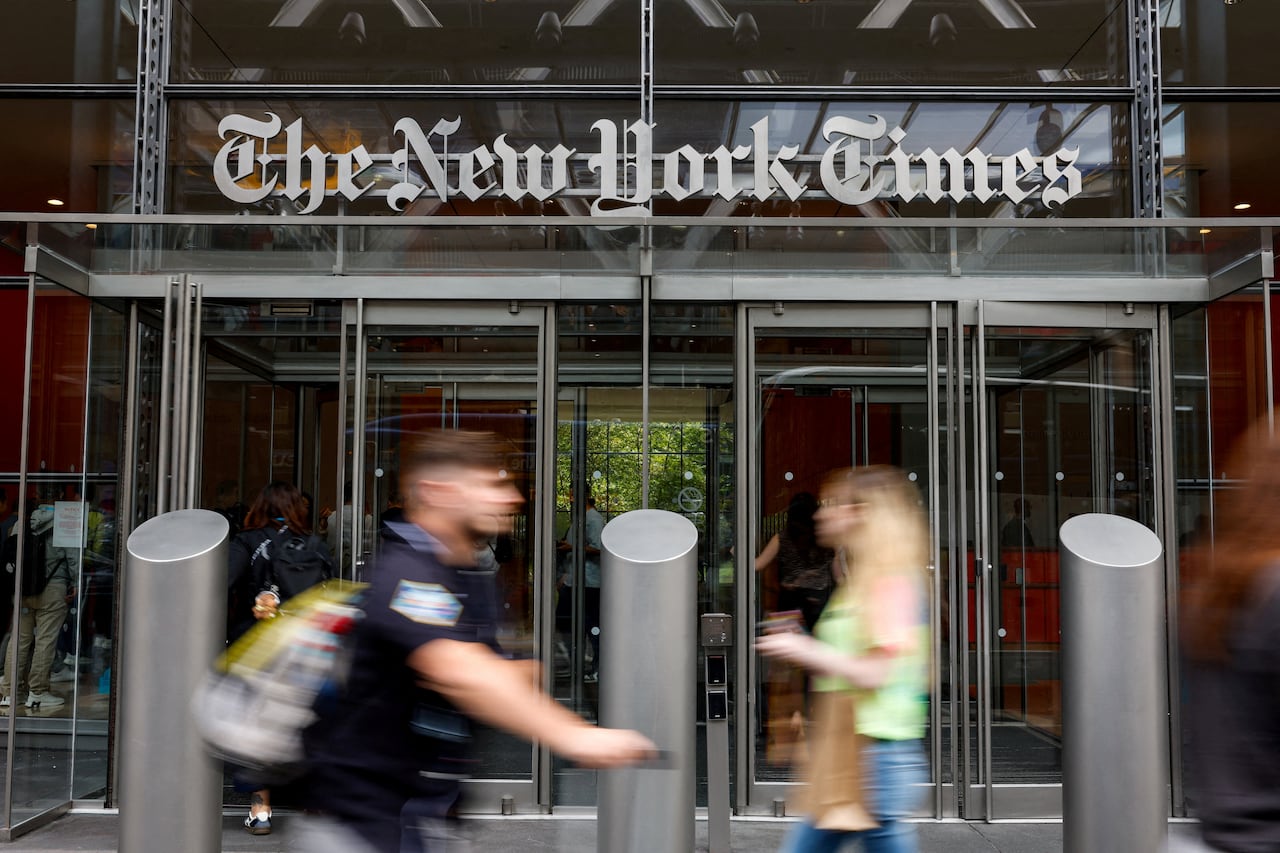News organizations including the New York Times, the Associated Press and the conservative Newsmax television network said Monday they will not sign a Pentagon document on its new journalism rules, making it likely the Trump administration will expel their reporters from the Pentagon.
Those outlets say the policy threatens to punish them for routine newsgathering protected by the First Amendment. The Washington Post, The Atlantic and Reuters on Monday also publicly joined the group, which says it will not sign.
“Reuters is committed to its commitment to accurate, impartial and independent news,” the agency said in a statement. “We also believe strongly in the protections of the press afforded by the US Constitution, in the unfettered flow of information and in journalism that serves the public interest without fear or favor. The Pentagon’s new restrictions erode these core values.”
US Defense Secretary Pete Hegseth reacted by posting the Times’ statement on X and adding a hand-waving emoji. Reporters who do not acknowledge the policy in writing by Tuesday must surrender their badges to the Pentagon and vacate their workplaces the next day, his team said.

The pro-Trump network is calling for a review of the policy
The new rules prevent journalists from accessing large swaths of the Pentagon unescorted, and say Hegseth can revoke journalists’ access to journalists who ask anyone at the Defense Department for information — classified or otherwise — that he has not agreed to publish.
“We believe the requirements are unnecessary and burdensome and hope the Pentagon will review the matter further,” said Newsmax, whose on-air journalists generally support President Donald Trump’s administration.
Chief Pentagon spokesman Sean Parnell said the rules establish “common sense information procedures.”
“The policy is not asking them to agree, just to acknowledge that they understand what our policy is,” Parnell said. “This has caused journalists to have a complete meltdown, with one victim crying online. We stand by our policy because it is what is best for our forces and the national security of this country.”

Journalists address false allegations
Hegseth also reposted a question from a follower who asked: “Is it because they can’t walk around the Pentagon freely? Do they think they deserve unrestricted access to a top-secret military facility under the First Amendment?”
“Yes,” Hegseth replied. Journalists say none of these assertions are true.
Pentagon correspondents say that signing the statement means acknowledging that reporting any information that has not been approved by the government harms national security. “This is simply not true,” said David Schultz, director of the Media Freedom and Access to Information Clinic at Yale University.
Journalists said they have long worn badges, do not access classified areas, and do not report information that risks putting any Americans in harm’s way.
“The Pentagon certainly has the right to set its own policies, within the constraints of the law,” the Pentagon Press Association said in a statement Monday. “However, there is no need or justification for requiring reporters to confirm their understanding of ambiguous and potentially unconstitutional policies as a precondition for reporting from Pentagon facilities.”
Noting that taxpayers pay nearly $1 trillion annually to the U.S. military, The Times’ Washington bureau chief Richard Stevenson said, “The public has a right to know how the government and the military operate.”
Trump has put pressure on news organizations in a number of ways, with ABC News and CBS News settling lawsuits related to their coverage. Trump also filed lawsuits against the New York Times and the Wall Street Journal and moved to cut off funding for government-run services such as Voice of America and Radio Free Europe/Radio Liberty.
https://i.cbc.ca/ais/3cb47874-6867-45a6-a30d-e130b203dced,1760405100466/full/max/0/default.jpg?im=Crop%2Crect%3D%280%2C280%2C7719%2C4341%29%3BResize%3D620
Source link